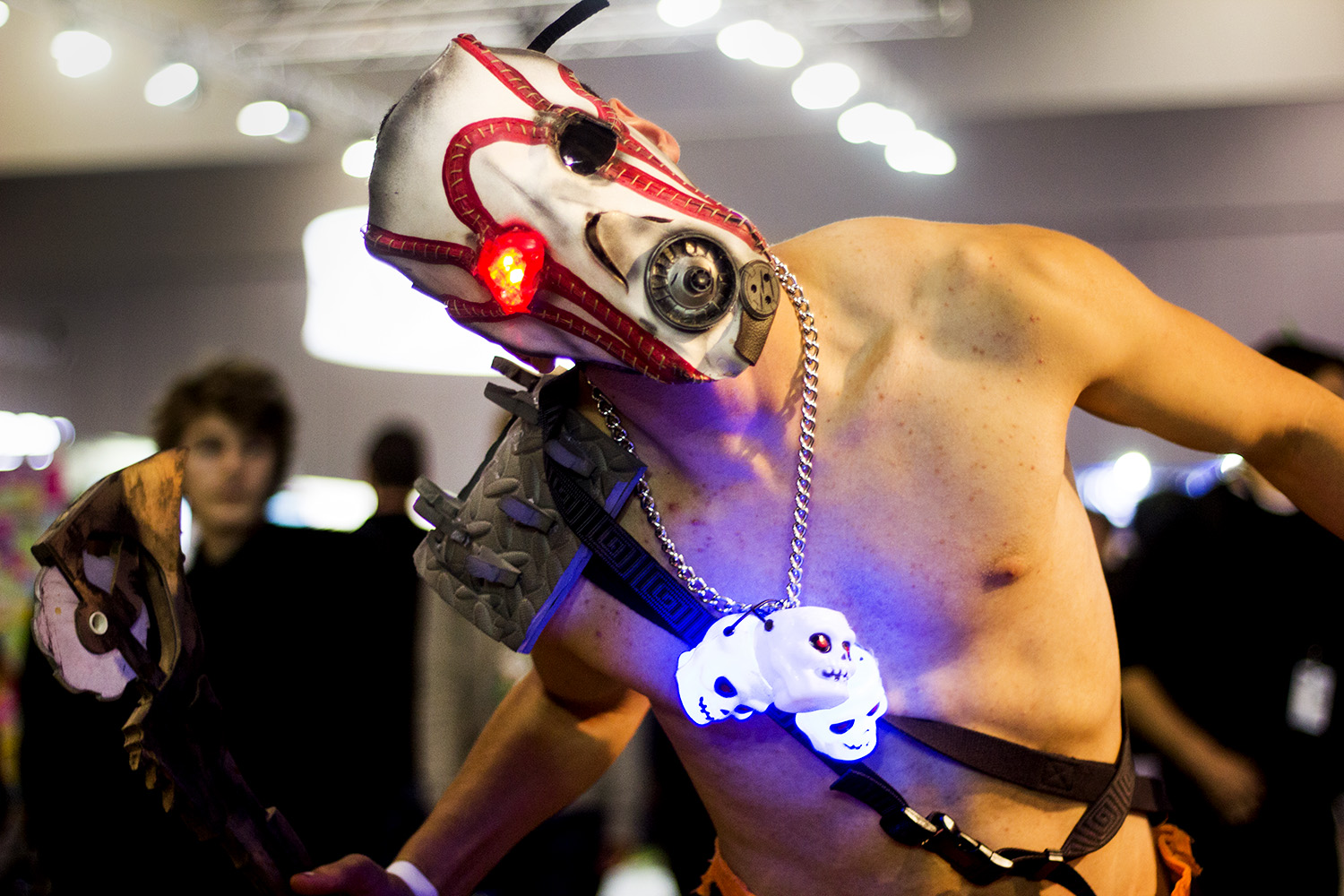
Forget it All
Brief warning: this is a very deeply personal post.
There’s a certain sense of betrayal that comes of learning your brain and your body aren’t working as they should. You go on for a long time assuming that your issues aren’t any kind of disorder, they’re just you not trying hard enough. Why would you think otherwise? Why would anyone think otherwise, when there’s nothing visible to show that’s not the truth?
I spent my entire childhood and early adulthood floundering, struggling against an invisible mental block that held me back while my peers leapt ahead. I’ve always been ditzy, forgetful, and easily distracted, finding myself unable to handle what should be easy tasks. For a long time I fought against my own body, trying to reach a potential everyone told me I had, but I couldn’t actually see.
And then, early this year, I was given an answer in the form of a diagnosis. A clear, definable name for a disorder that has plagued me for over twenty years:
Turns out I have ADHD.
As the doctor explained what this meant for me, I couldn’t hold back my tears. Not the same kind of tears that came of being told I had Chronic Fatigue Syndrome, but instead tears of relief, of learning that there is more to me than what I have never been able to do. There was finally someone else—a qualified doctor—telling me that I wasn’t stupid, I wasn’t lazy, I wasn’t imagining how god damn hard it has been trying to live like everyone else.
There are stigmas around ADHD, right? At least, I grew up with them: the idea that ADHD doesn’t actually exist, that they give kids stimulants to shut their bright little minds up. Or that’s what I was told when I was young and nobody noticed me displaying the symptoms in my own little-girl way. Not that anyone ever noticed (except for one friend’s mother, who was possibly joking when she asked if my energy came from ADHD) because it turns out the symptoms often display differently in women, something I literally never knew until I read that article and thought, “Hang on, that’s exactly what I’m like.” It’s amazing what communication and education can teach us about ourselves.
Like Maria Yagoda, who wrote the article, I simply assumed that my inability to do, well, anything was a personal failing. I never finished projects, I turned up to everything late (or weeks early), I couldn’t focus on my schoolwork no matter how hard I tried—and I thought that this was my fault, that I had to work harder. I drove myself further and further into the ground fighting myself over these things, and found myself still failing at everything, still abandoning people.
Other people probably thought that too. When the things that people with ADHD cannot do are similar on the surface to negative traits in neurotypical people, the assumption that we’re faking our problems, or lying about the severity of them, or generally just lazy is pretty hard to avoid.
I get it, I really do, because it’s hard enough trying to write about the fact that what my brain struggles with looks like me not caring about the world. Because I already hate myself for all the things people have said to me about my inabilities, or what they may still say.
Forget that, when unmedicated, I can forget that I’ve flushed the toilet literally as the toilet is still flushing, thus trying again. Forget that I wouldn’t be able to tell you which dates are important to me because for me, the past doesn’t really exist once it’s gone. Forget that I can’t remember if I called my mum before she died.
Forget it all, because I do, all the time. I think that’s the worst part of my ADHD for me: that no matter how hard I try, time and memory slip through my fingers like water. Is there a drawer in an NT person’s mind that holds all those little numbers? Do they have a red-string map pinned across their mental wall that links up relevant information? What does it feel like to be able to draw a linear timeline of your life, or to be able to look into your future and imagine actually having one?
Of course there’s more to ADHD than that: I talk without thinking, I’m spontaneous to a level that could land me in trouble, I struggle to commit to even the smallest things, I zone out when something isn’t stimulating, I fidget constantly, I can’t even remember to do the thing I said I would only five minutes ago. I’m frustrating and unreliable, even though I’m constantly trying to be otherwise. I’m better now, but before knowing that I have ADHD and learning ways to work with it, I was a jumbled mess of a person.
I understand now that before understanding my disorder, I couldn’t have helped these things about myself, even though I tried. The front part of my brain doesn’t work like it should, or whatever. When, as a child, I was scolded because I struggled with something that adults considered easy, it wasn’t because I was lazy—it was because I literally couldn’t do it. Surprisingly, I now have anxiety about performing even simple tasks in front of others. No kid likes being told they’re not trying hard enough when they honest-to-god are, it makes them feel stupid and it has an effect on how they view themselves.
Even now, knowing what I do about ADHD and myself, it’s still hard not to get frustrated when I only tick one task off of my daily to-do list, or when I forget even the most basic thing. I’m anxious about driving, I won’t do certain things because I know people with ADHD often can’t handle them, I have sticky-notes literally everywhere and I still misplace and forget things. It’s a daily slog just trying to function, and it’s even harder to ask people to be considerate because of it.
Being diagnosed and getting medicated has helped enormously. People close to me can notice a difference between my medicated and unmedicated self, and I’ve been able to finally concentrate and even finish things. Medication isn’t a cure, it can’t disappear the ADHD or the bad habits built up from a life of having it, but it does give me a foundation to work off of, and it’s absurd how much I needed that.
At twenty-two years old, I’m having to rebuild my way of living from the ground up. I have to knock down the old habits that have built up over the years, have to relearn how to attack my days, weeks, months, and beyond so that I can actually get somewhere. I’m not neurotypical, which is something I assumed for a long time, and simply undoing the ideas I’ve created about myself from that assumption is a lot more work than I can say.
However, my ADHD is no excuse for me to ignore responsibilities. I don’t want to not be held accountable for my mistakes, I don’t want some free pass for when I am actually being a lazy brat. I don’t want to let my ADHD, now known, to continue to strip me of the future I want. I’ve been fighting this disorder my entire life to get to where I am now, and that’s not going to change now that it has a face.
Still, it is something I need to make concessions for. The rest of my life is going to be lived with ADHD, and there are going to be things I fail at because of it. As much as I change my lifestyle and take my medication, it’s going to be part of who I am. So: if I forget something that’s not deadline, relationship, or life-threatening, don’t bother guilting me about it. If I don’t feel comfortable doing something because of my inattentiveness, we’re all just going to have to live with that choice. If my sensory issues get set off by something, I don’t want to be patronized for it.
I’m really only asking for compassion. From my friends, from my peers, from myself. I’m trying my best, but sometimes I’m going to break down, and when I do, compassion’s going to be the thing that helps me get back on my feet.
(That, and Google Calendar.)
Like my words? Support me on Patreon!




4 Comments
Write Handed Poetry
Thanks for opening your heart and sharing all this. So brave.
imperialarchon
Thank you so much <3
Ajay
Saf, you are one of the most endearing people I follow on Twitter. Hearing about what you live through every day makes me appreciate you even more. Much <3 to you
imperialarchon
Thank you so much, Ajay <3